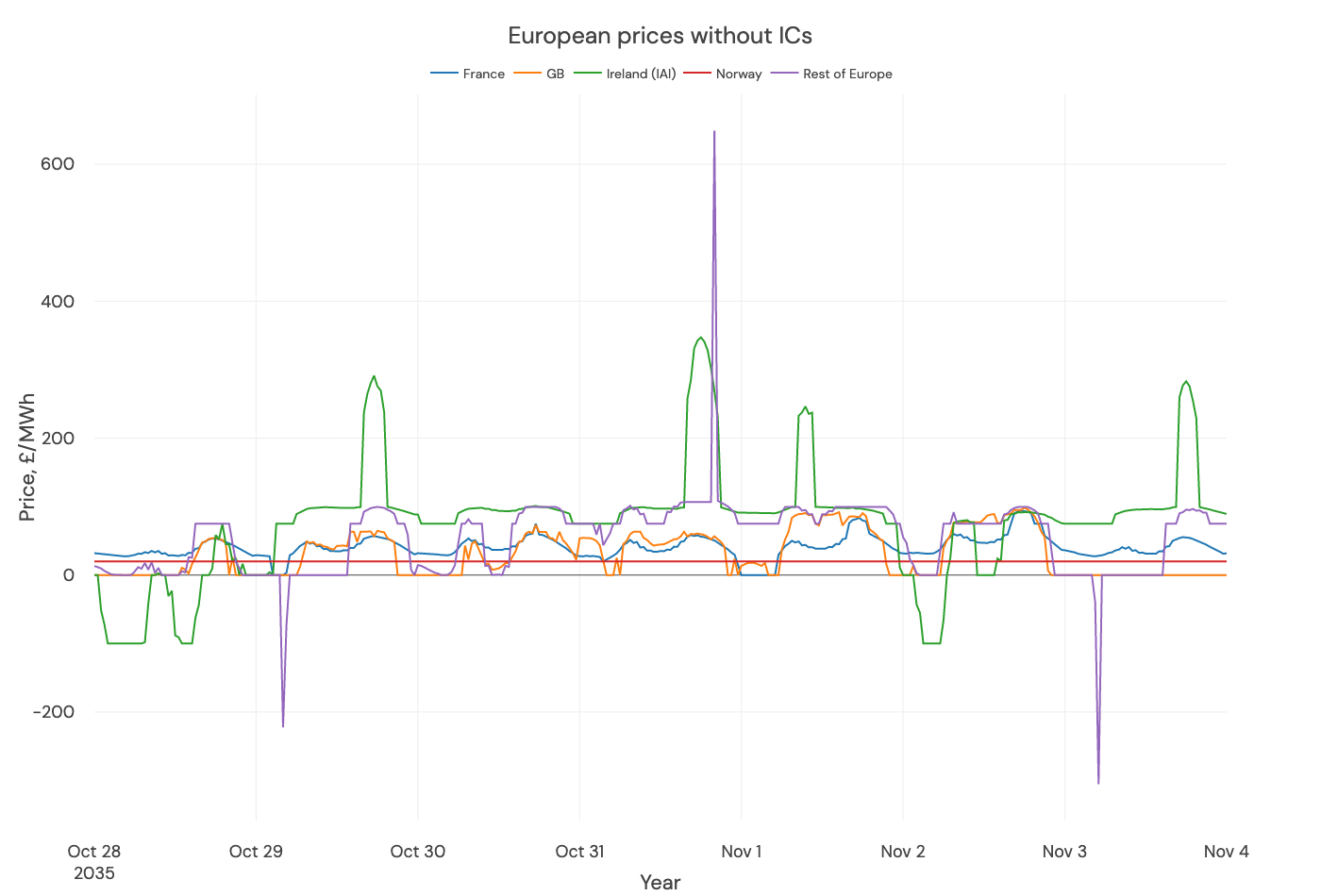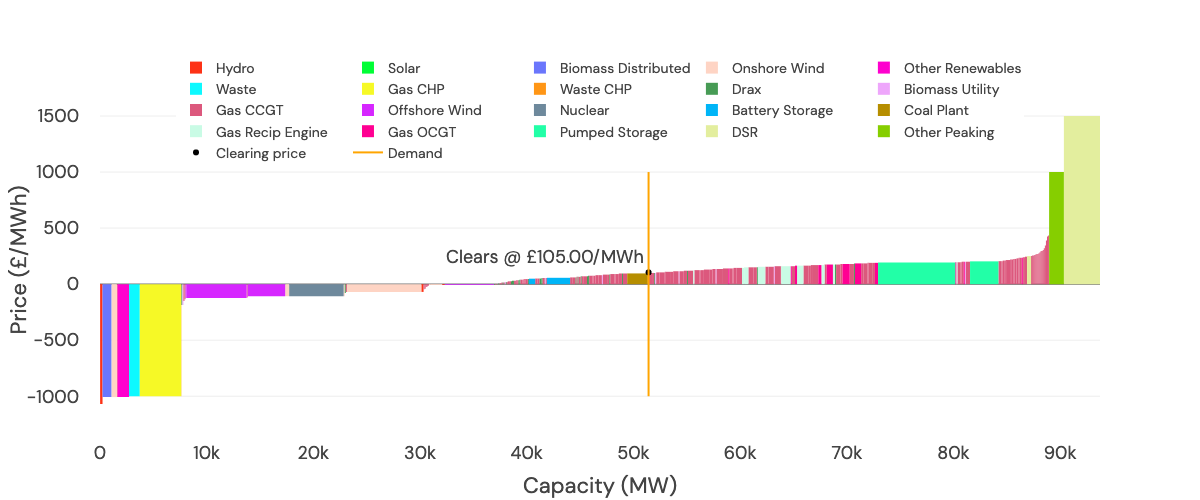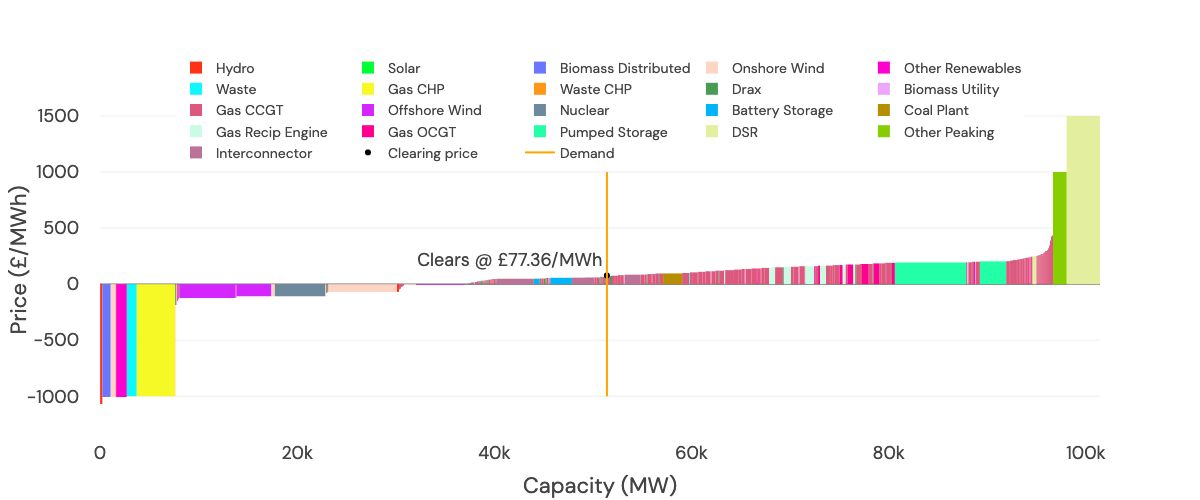Interconnection
GB imports and exports power with our neighbours and this impacts price

We model interconnection on GB prices by first modeling European power prices and forecasting the capacity of interconnectors
Check out the future capacity of interconnectors
We then work out the dispatch, which can change prices across each side of the interconnector, by modeling flows in each direction.
The area labeled the 'Rest of Europe' is heavily interconnected
The Netherlands, Belgium, Denmark, and Germany will often have the same, or similar, power price as they have many GW of interconnection. To simplify the model, we treat them as one.
We model power prices and Norway and France separately.
Modelling wholesale power prices in neighboring countries
We model prices in Europe in much the same way as we model GB prices. We look at a capacity stack (which is given by the FES) along with short-run marginal costs of generation and renewable intermittency (using the same 2018 wind year as a seed) and model demand. Thus, we model prices across each of the interconnected geographies.


Each of the interconnectors is added to the supply stack, and the marginal plant is re-calculated
Interconnectors act to increase demand or increase generation:
- Increase demand if they export power from the UK to the country - this happens when prices in the UK are lower than in that country
- Increase generation if they import power from the country to the UK - when the price in that country is lower than the UK
The marginal plant is recalculated because the addition of interconnectors to the supply stack can change the order in which plants are dispatched. Therefore, we might have a new marginal plant setting the market price for electricity.
See the addition of interconnectors (pale purple boxes) into the supply stack, in the 2nd chart

Source: Modo Energy. An example supply stack during one half hour period, within GB only - including energy storage.
By importing cheap European power, the GB price falls to £77.36/MWh from £105/MWh. With interconnectors, the demand is higher (as we export to the Rest of Europe), but the price is lower (as we import cheaper power from France, Ireland and Norway).

Source: Modo Energy. An example supply stack during one half-hour period, with the addition of interconnectors.
Our interconnector model assumes coupling of markets between GB and EU
As the flows are optimised to make each market the most efficient, we are modelling coupled markets between GB, France, Ireland, Norway and the rest of Europe.
Updated 4 months ago